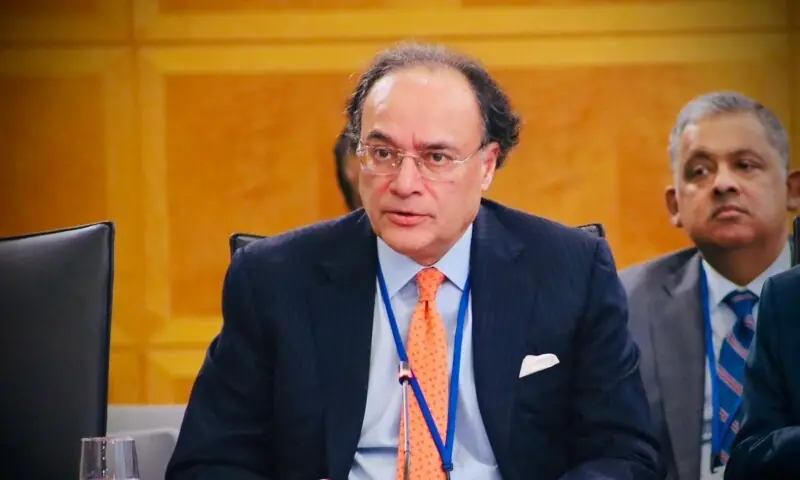ISLAMABAD: Federal Finance Minister Muhammad Aurangzeb has confirmed that Saudi Arabia maintains a firm interest in investing $10 billion in Pakistan, signaling a strategic shift in the bilateral relationship from government-to-government financing to a business-to-business (B2B) model.
In an interview with Arab News, the minister revealed that the government is actively preparing a pipeline of “bankable” projects in the private sector to channel this Saudi investment. He identified mining, information technology, agriculture, food security, and tourism as the priority sectors for this incoming capital.
Highlighting Pakistan’s improved economic stability, Aurangzeb pointed to a clear reduction in inflation, a stable rupee, and strengthened foreign exchange reserves. He also noted that international rating agencies Fitch and Moody’s have improved Pakistan’s outlook. Furthermore, the second review of the International Monetary Fund’s (IMF) $7 billion program has been successfully completed, with a board decision expected in early December.
Providing specifics, the Finance Minister disclosed that the massive Reko Diq copper-gold project is nearing financial close. The International Finance Corporation (IFC) has prepared a $3.5 billion loan consortium for it, and the participation of the US Exim Bank is expected to be restored soon. The project’s first production has an export potential of $2.8 billion, with Saudi company Manara Minerals expressing keen interest in acquiring a 15 percent stake.
Aurangzeb also revealed joint possibilities in sports manufacturing linked to the 2034 Football World Cup, with Sialkot’s Forward Sports model under consideration for industrial cooperation with Saudi Arabia. He added that Pakistan has made significant progress on cooperation with the United States in the field of critical minerals.
Meanwhile during a session of the Balochistan Assembly, Member of Assembly Farah Azeem Shah made significant remarks, praising national institutions and their role in foreign policy.
Speaking on a point of order, Shah stated that the 27th Constitutional Amendment would serve as a crucial communication bridge between state institutions. She also commended the actions of Field Marshal Asim Munir, asserting that his efforts have successfully pulled the country out of “global isolation.”





